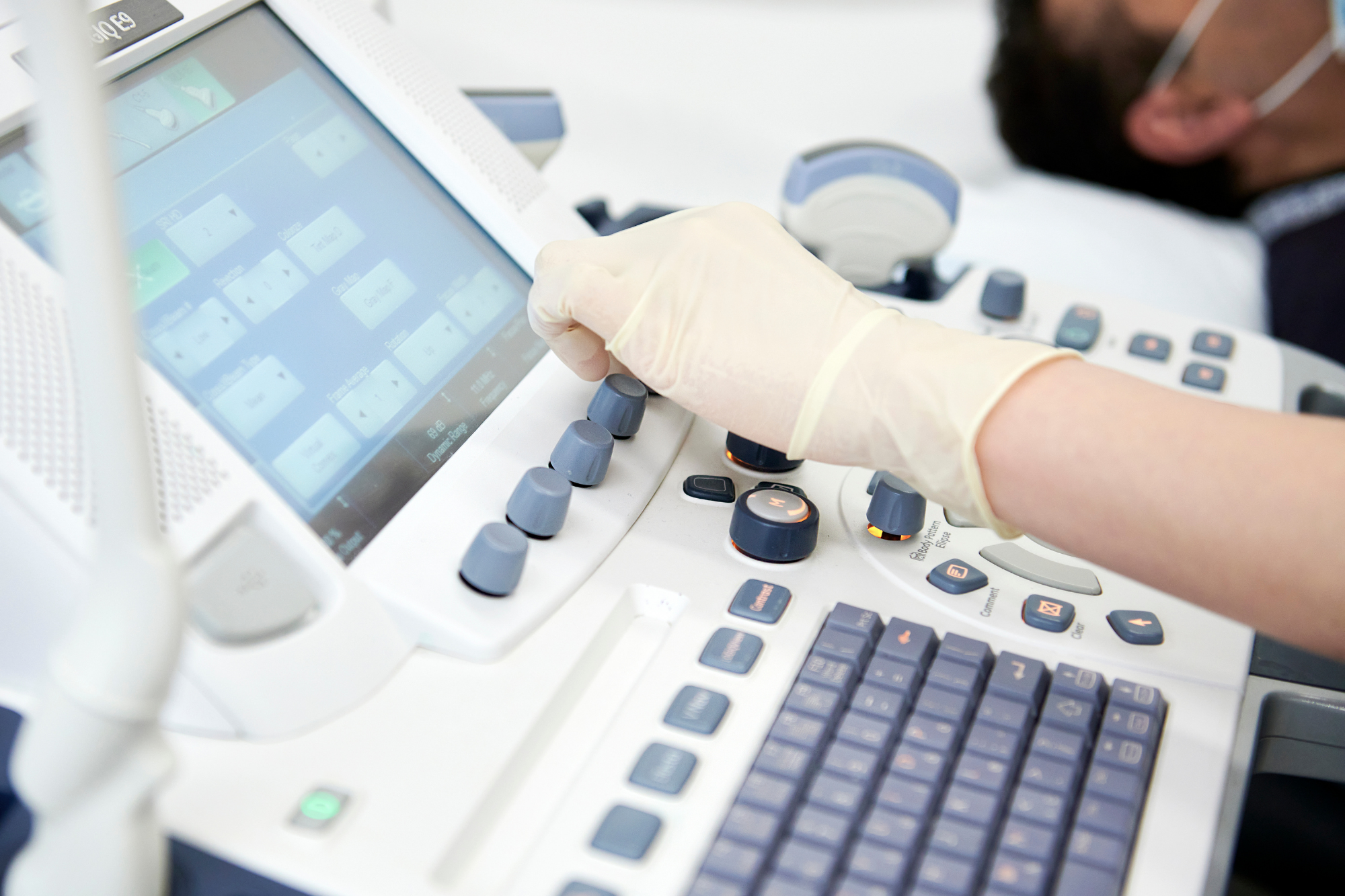
Ultrasound
Book AppointmentWhat is an Ultrasound?
Ultrasound, also known as ultrasonography, is a medical imaging technique that uses high-frequency sound waves to create real-time images of the body. This non-invasive and radiation-free procedure has diverse applications in various medical fields, including obstetrics and gynaecology.
The ultrasound process involves the use of a small handheld device called a transducer. This transducer emits high-frequency sound waves into the body, and when these waves encounter different tissues, they are reflected back as echoes. The transducer collects these echoes and sends them to a computer, which then interprets the information and generates a visual representation of the internal structures.
In obstetrics, ultrasound is commonly employed to monitor the development of a fetus during pregnancy. It allows healthcare providers to visualise the fetus, check for multiple pregnancies, assess fetal growth, and identify potential abnormalities. Ultrasound is also widely used in gynecology to examine the uterus, ovaries, and other reproductive organs.
Beyond obstetrics and gynecology, ultrasound is utilised for imaging various other parts of the body. It can assess the liver, gallbladder, kidneys, pancreas, and blood vessels, providing valuable diagnostic information without exposing patients to ionizing radiation. Musculoskeletal ultrasound is used to examine muscles, tendons, ligaments, and joints, aiding in the diagnosis of conditions like sprains, tears or inflammation.
One significant advantage of ultrasound is its real-time imaging capability, allowing healthcare providers to observe moving structures, such as a beating heart or blood flow in vessels. This dynamic aspect makes ultrasound particularly valuable in guiding procedures like needle biopsies or fluid drainage.
Ultrasound is generally considered safe, and it is widely used during pregnancy because it does not involve ionizing radiation like X-rays or CT scans.
What to expect from an Ultrasound?
During the examination, you'll either sit or lie on the examination bed, and the specific area for examination will be exposed. A gel will be applied to the skin, which can be easily wiped off after the procedure. The sonographer will then use gentle pressure to place the transducer on the designated area. The transducer is maneuvered across the area with a sliding and rotating motion to project the image onto the screen. The sonographer captures still photographs from the dynamic images displayed on the screen.
The duration of the ultrasound appointment may vary depending on the area being examined. When scheduling your appointment, our reception staff will provide you with an approximate time for the procedure.
How to prepare for your appointment
Based on the specific ultrasound examination prescribed by your doctor, there might be a need to fast from both food and fluids or other examinations may entail drinking a substantial quantity of water before your appointment to ensure your bladder is adequately filled. Any essential preparations for the examination will be communicated to you when you schedule your appointment.
What do you need to bring to your appointment?
- Your referral form - please note we accept referral forms from all providers
- Medicare card
- Pension or concession card
- Any prior imaging
Results
After your CT scan, our highly skilled radiologist will analyse the images and interpret the findings. Once this process is complete, the results will be promptly transmitted directly to your doctor. This streamlined communication ensures that your doctor receives the information as soon as it becomes available.
Your doctor, armed with the insights provided by the radiologist, will then take the time to thoroughly review the results.
Fees and Billing
As a radiology provider deeply committed to serving the community, we strive to facilitate access to essential medical services. In the majority of cases, we bulk bill to Medicare. Before your scheduled appointment, we strongly recommend checking fees with the specific radiology practice you plan to visit.
Our commitment to community-focused healthcare extends to providing transparent and accessible information about billing processes, empowering our patients to make informed decisions about their healthcare journey. We understand the importance of financial considerations in healthcare, and our goal is to support you in navigating these aspects seamlessly.
Patient Information Factsheets

Find a practice
We have multiple locations across Tasmania. Click here to find a clinic to visit.
Fees and Billing
In most instances, we bulk bill to Medicare, but it is important to check with your individual practice prior to your service.
